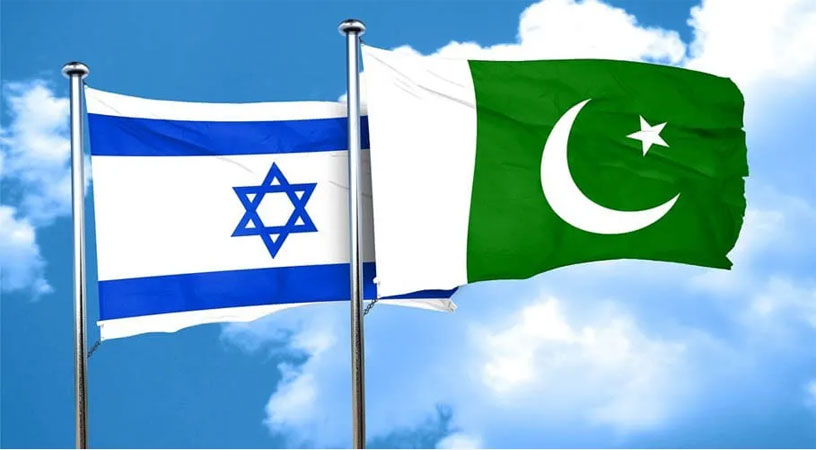‘IK hinted at normalizing Pakistan-Israel ties’


The views were expressed in an opinion piece in “The Jerusalem Post” by Harry Richer, a foreign policy analyst who has served as an aide to a member of the UK Parliament. The opinion piece has explored how far relations can be ‘realistically’ normalised between Israel and Muslim countries.
Richer wrote that although Pakistan has had a predominantly pro-Palestine stance throughout its history, there has been an ‘occasional sign’ that the country could improve its relations with Israel.
“Former prime minister Imran Khan – despite his strong rhetoric against Israeli policies – hinted at Pakistan needing to forge its own foreign policy path. This was particularly pertinent at a time when the rest of the Muslim world began to normalize ties with Israel on the basis of self-interest,” the article said.
Richter wrote Pakistan is an interesting case in point. Although it has maintained a policy position that was pro-Palestinian for a long time, recent years have seen an occasional sign of its desire to improve relations with Israel. Former prime minister Imran Khan – despite his strong rhetoric against Israeli policies – hinted at Pakistan needing to forge its own foreign policy path. This was particularly pertinent at a time when the rest of the Muslim world began to normalize ties with Israel on the basis of self-interest. Khan’s Pakistan Tehreek-e-Insaf Party winning 93 National Assembly seats in the country’s recent election his influence – or perhaps the emergence of another like-minded and equally pragmatic leader – could bring opportunities for reevaluating the extent to which Pakistan can afford to reconsider its historic hostility toward Israel, particularly in the face of its ongoing deep economic crises.
For Pakistan, normalization with Israel would bring about significant economic benefits, including technological support in agriculture, cybersecurity, and defense, not to mention potential financial investment, among other things. In 2022 alone, trade between Israel and the UAE jumped 124% to $2.59 billion year-on-year exhibiting the potential.
A more diversified foreign policy on Pakistan’s part could also bring with it strategic benefits as it navigates its own complex relationships with both India and Afghanistan. But for that, a strong resistance from within its own military establishment, which has long held back full-blown normalization with Israel, would need to change. A change in leadership would most probably also be needed for any resolution to move forward, and figures like Khan could very well be central in changing both public opinion and military policy alongside of course, the continuous evolution of regional dynamics.
A more diversified foreign policy on Pakistan’s part could also bring with it strategic benefits as it navigates its own complex relationships with both India and Afghanistan.
Leave a Comment